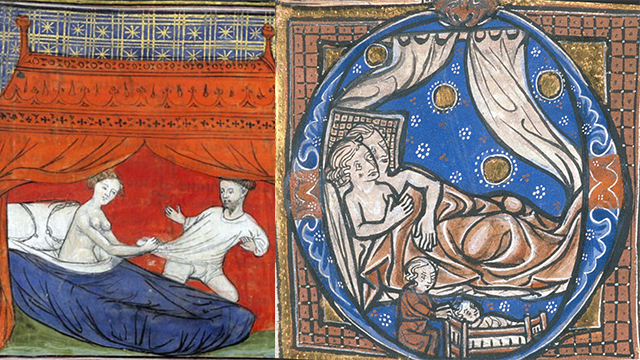Dr. Kate Lister is a lecturer in the School of Arts and Communication at Leeds Trinity University, primarily researching the literary history of sex work. This month, she tells a little about what she does and why it’s important in BBC History Magazine. “Tarting up the facts to seduce a viewing audience is one thing, but how do you actually research the history of sex? What can the study of sex bring to wider historical debates, and what is it like to be a sex historian?”
Adding to Lister’s perspective is that of Dr. Eleanor Janega, who researches medieval sexuality. “People act as though studying sexuality is unnecessary, or completely inappropriate because we still treat sex as something improper to talk about. As a result, it’s hard to be taken seriously. No one questions military history, because we all accept large scale violence as normal, but because sex is naughty people can act as though studying sexuality is just a bit of a giggle.”
Western society is in a bit of a mixup when it comes to thoughts about sexuality, notes Lister:
Despite images of sex being everywhere in our society, we remain deeply uncomfortable with the subject. We may be happy enough to watch Louis XIV lust his way through the French court in BBC drama Versailles, but when it comes to talking about our own sex lives and bodies, we are far less enthusiastic. This cultural ambivalence around sex presents sex historians with a unique professional stumbling block – talking seriously about a subject that is laden with embarrassment, titillation, and a hefty amount of ‘OOOH Matron’. I have researched sex history for most of my academic career and the nature of the subject regularly presents me with socially awkward situations. For example, it doesn’t matter how grown-up you try to be, there will always be something mildly embarrassing about an editor calling you up to ask if you want ‘blowjob’ hyphenating in your chapter about sperm. And if you felt uncomfortable reading the word ‘blowjob’ on BBC History Magazine’s website, then you see my point.
The Prophet himself said: “Part of the public horror of sexual irregularity so-called is due to the fact that everyone knows himself essentially guilty. ‘Methinks the lady doth protest too much.’ If men would face the facts of life, including their own constitutions as they are, practically all abuse and perversions would disappear.” (The Confessions of Aleister Crowley, Chapter 50)

